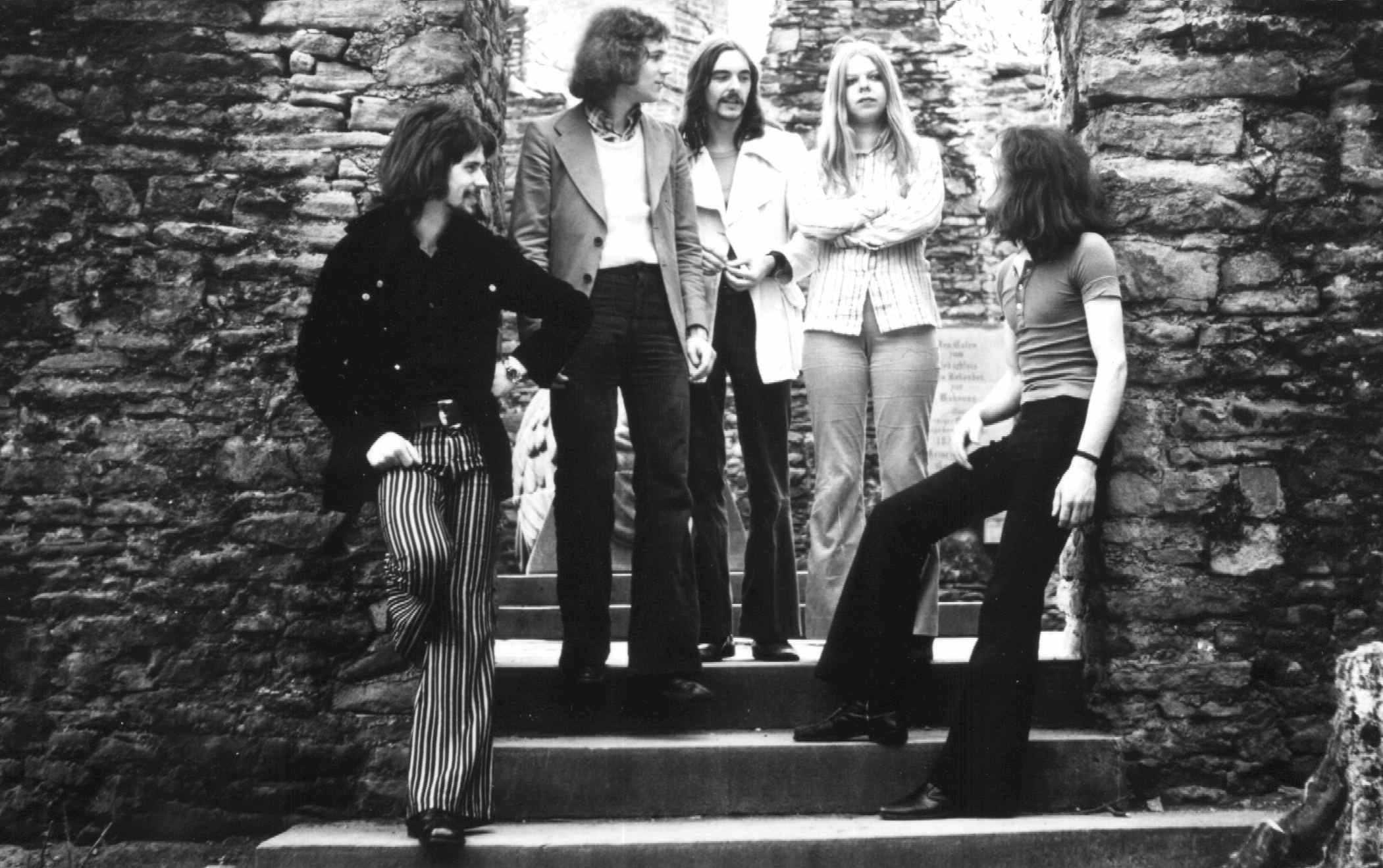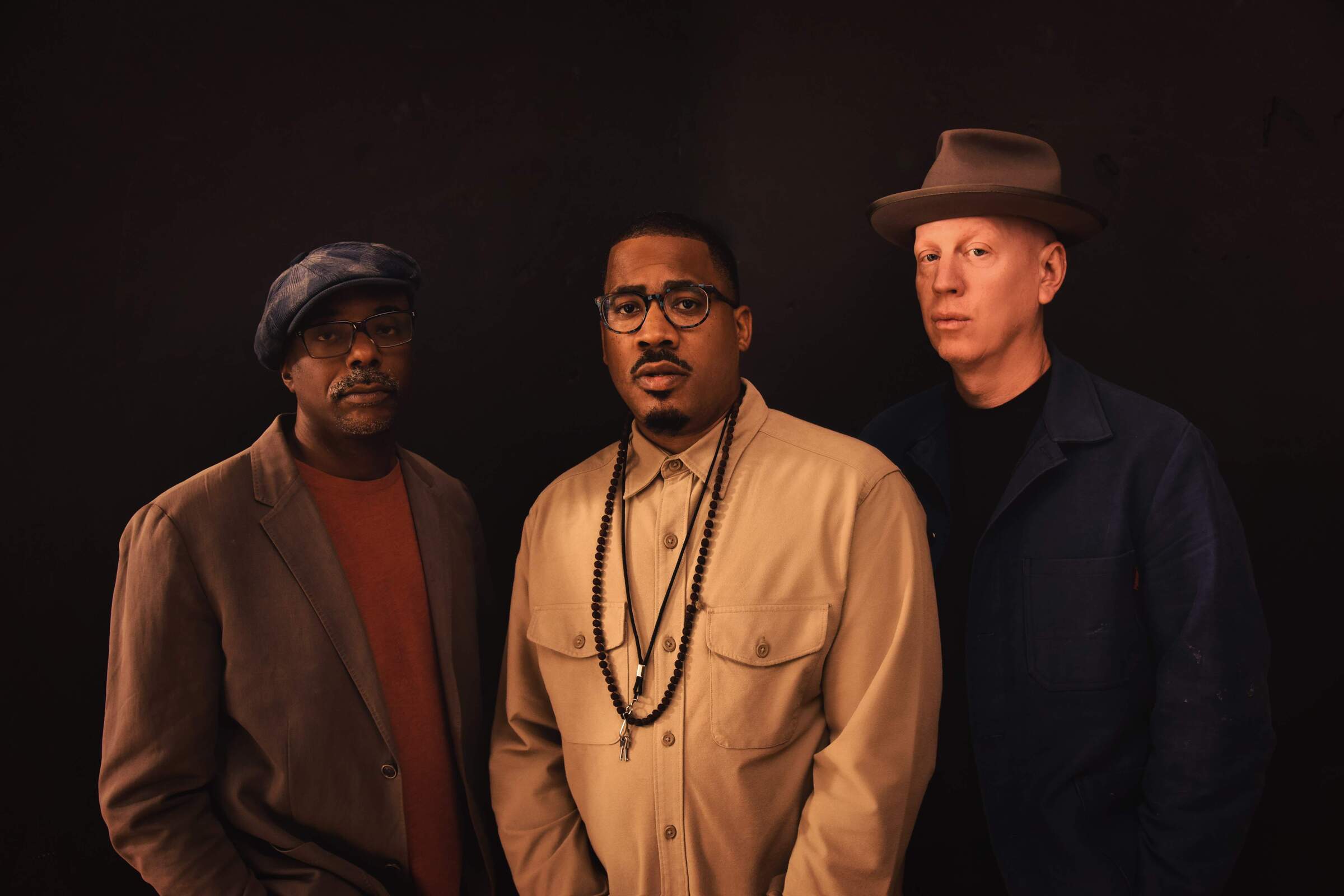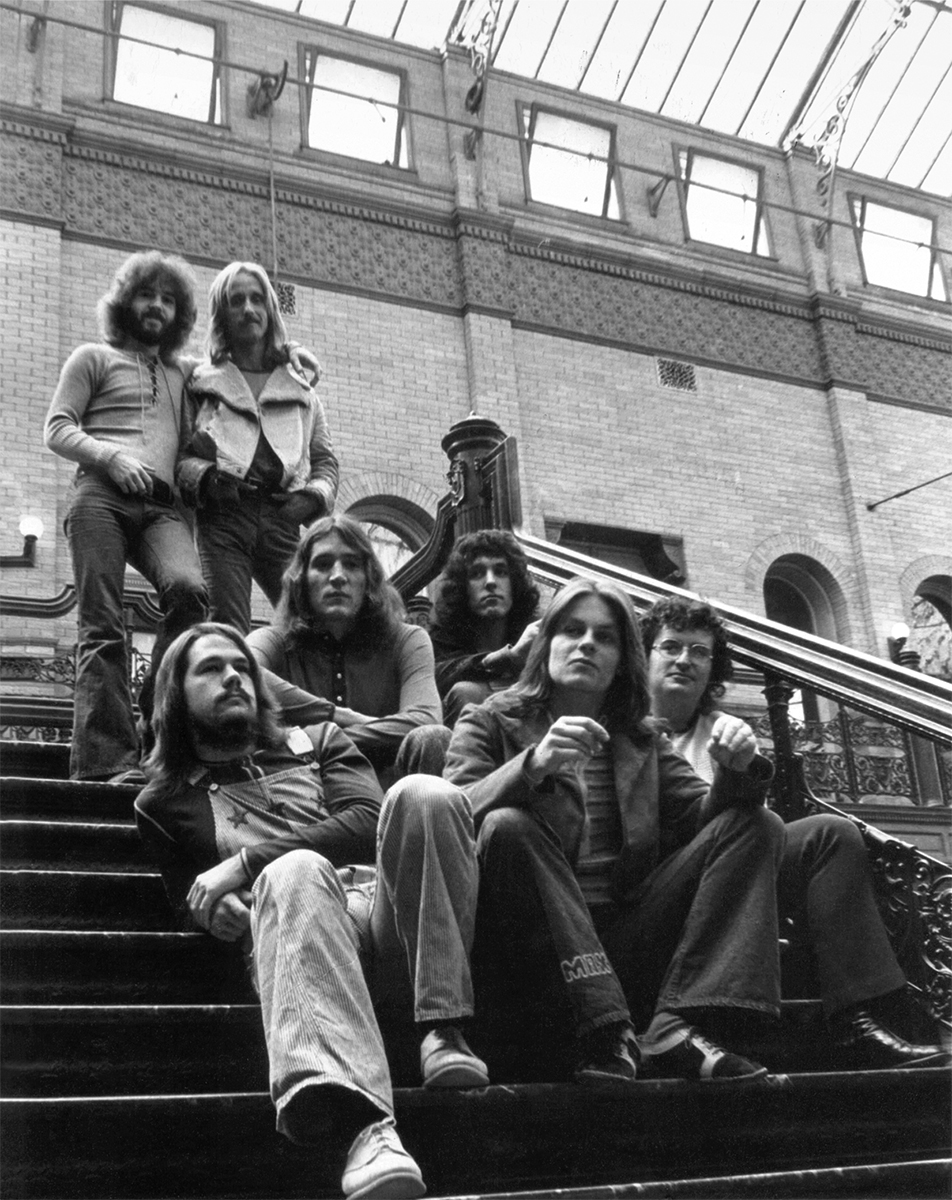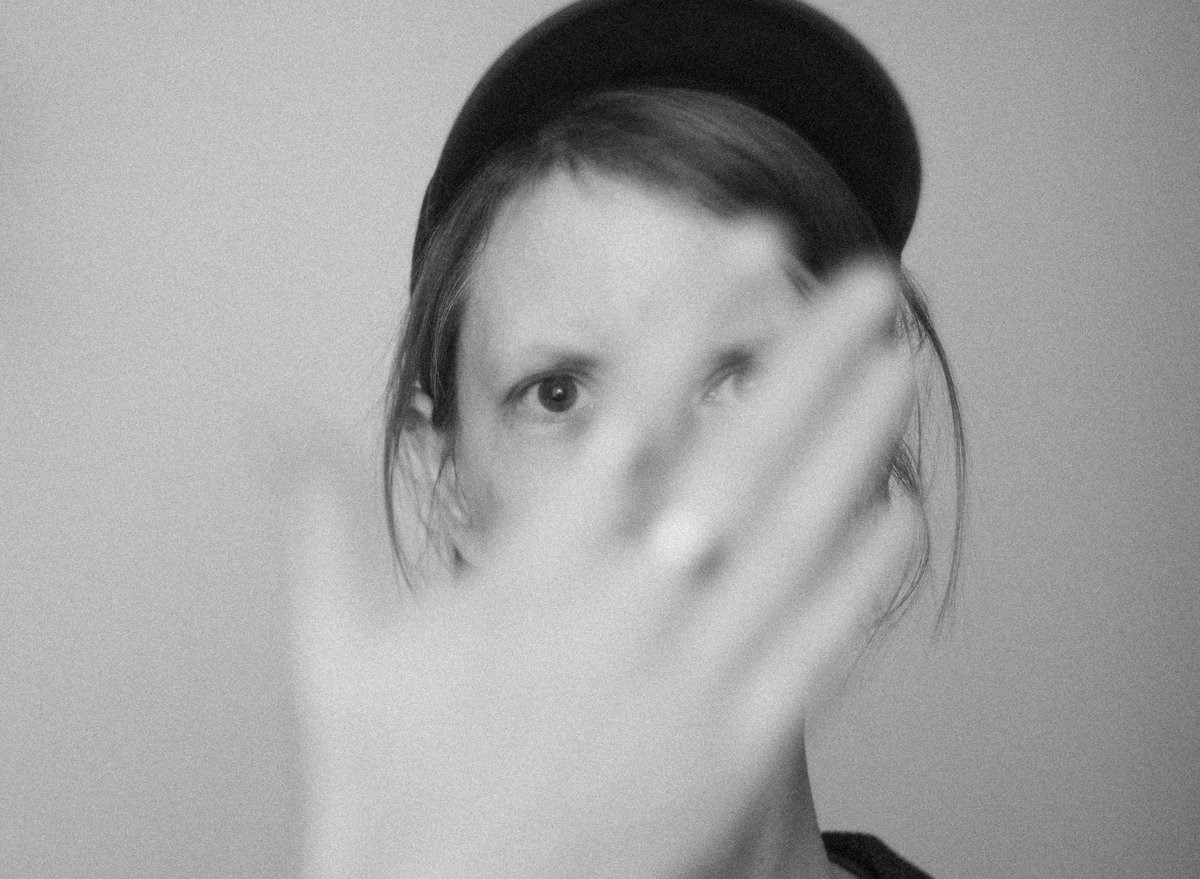Chris Braun Band | Interview | ‘Both Sides’
The Chris Braun Band, originally formed in Dortmund in 1970 as a rebranding of The Faces, showcased a dynamic blend of blues rock and progressive styles, drawing early comparisons to bands like Frumpy.
Led by Joachim Bernstein, the group initially gained recognition for their energetic live performances across dance schools and clubs throughout Germany. In 1970, vocalist Chris Braun joined the band, prompting a shift in their sound with the addition of Elmar Krohn on flute. The band’s achievements included a notable finish at the German Beat Festival in Recklinghausen. Despite limited commercial success, their recordings, including the acclaimed album ‘Both Sides’ (1972) on BASF, received critical praise for its musical depth and Braun’s distinctive vocal style. Over the years, the band underwent several lineup changes and stylistic shifts, contributing to the evolving landscape of German rock music until their dissolution around 1984.
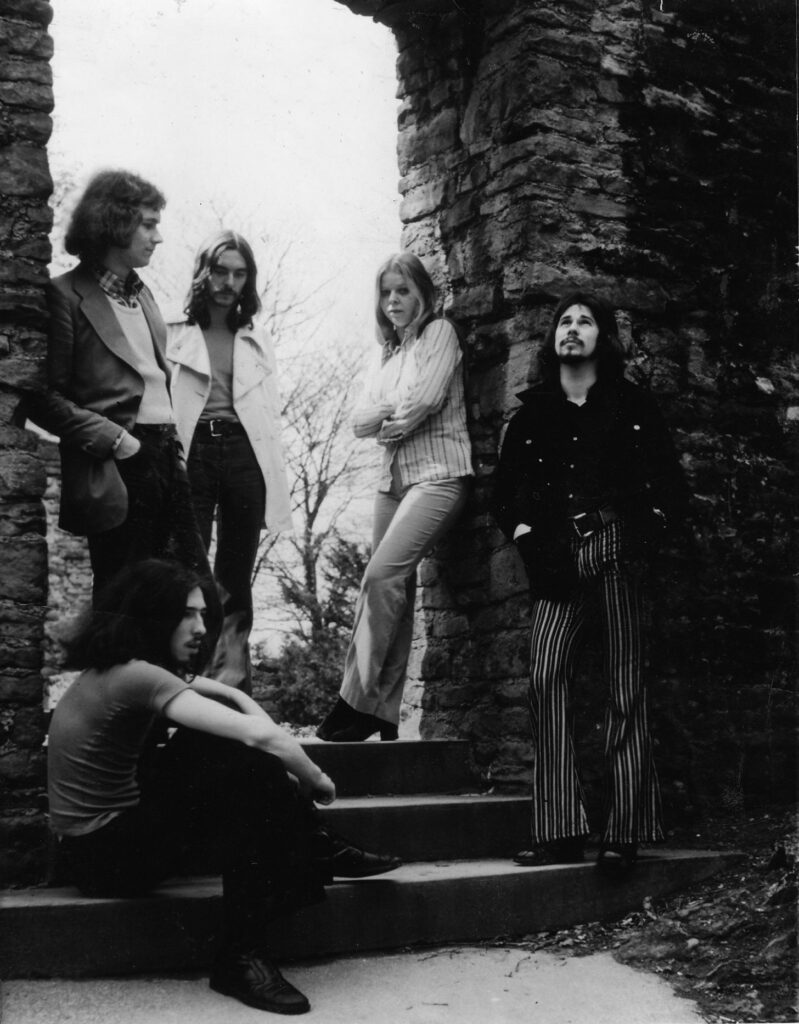
“We performed at many major festivals alongside well-known German bands”
Are you all from the Dortmund area? What was life like there after the Second World War?
Joachim Bernstein: Yes, we all came from the Dortmund district. Life after World War II, specifically in the mid-1960s, was very simple. There were no grocery stores or supermarkets, and many, many streets in Dortmund were still unpaved. The men, unless they were war-disabled, either worked at the Hosch steel plant or in a coal mine.
The prevailing industry was tough and relentless, but it provided enough money for survival. At that time, children received significantly less attention than they do today. Very few families owned a car, and even fewer were able to go on vacation.
All in all, one must say that it was a very modest life.
Was there a certain moment when you knew you wanted to become a musician?
That must have been around 1965. I was so enthusiastic about the Beatles that I had an overwhelming desire to play the guitar. So, I tried to save up 100.01 DM to buy a cheap, electric, Asian guitar. I had no idea how to play the guitar and tried to teach myself the first chords.
Tell us about the teenage years and the local scene. Did you play in any bands before joining Chris Braun Band? Did any of those bands record anything? What did the repertoire consist of?
Teenage life in the late 1960s offered little entertainment. At that time, there were no records or other events featuring live bands. The only exception in Dortmund was the Star Club at Willemshof on Wilhelmstraße, where regional bands played every Sunday. Admission cost two marks, and I was so fascinated by this scene that I absolutely wanted to be part of it.
No, I hadn’t played in any other band before. Initially, we called ourselves Faces, and later, when the singer Chris Brown joined us, we renamed the band to Chris Braun Band. Our repertoire mainly consisted of cover songs.
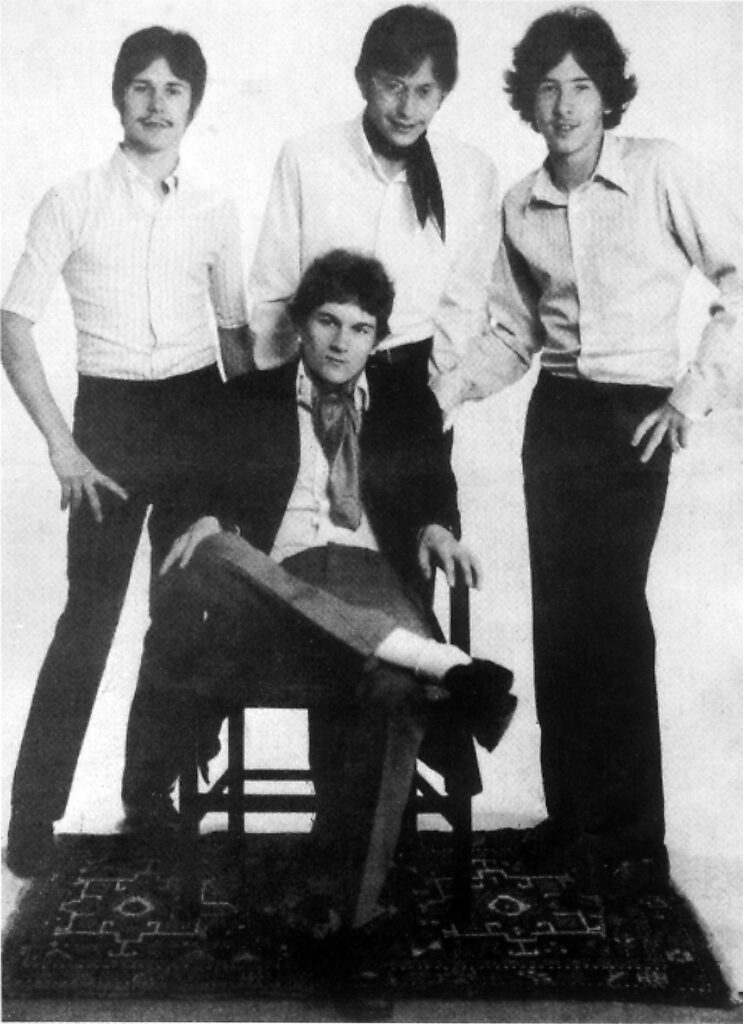
What about other members of Chris Braun Band? Were they involved with music before?
The origin of the Chris Braun Band band can be described as follows:
The future drummer, Billy Bakine, and I attended the same class at the Dortmund elementary school in the district of Eving. Both of us dreamed of playing together in a band, but we had no musical training or instruments. In 1966, I changed schools and met a classmate named Manfred Göhring who already played guitar, albeit solo. I befriended Manfred, and he showed me the things he had already learned on the guitar. Shortly after, we bought a cheap drum kit for around 300 DM, and Billy began practicing on it. He quickly realized he needed lessons to properly play the drums.
Now we were three: two guitarists and a drummer, a band without a name, which was to have its first performance at a private stag party. Soon after, I organized our first proper gig at a youth center, where we had 30-40 paying spectators. From then on, we intensified our rehearsals and tried to get better amplifiers and instruments.
I switched from guitar to bass as we quickly realized our sound was too thin without a bassist. At another gig at a youth center, we met a young musician named Elmar Krohn, who was a very skilled musician and also performed as a singer. We quickly agreed that if we wanted more success, we needed a good singer, and Elmar was willing to join Faces.
In this lineup, we achieved local fame relatively quickly and performed a variety of gigs that helped us develop a certain level of professionalism.
How did you originally meet Chris Braun?
I met Chris Braun, who was 16 years old at the time, during rehearsals at a youth center in Dortmund. She was the singer for a Dortmund group called Mods 2115 at that time. I liked her smoky voice, and I asked her if she would like to join Faces as a singer.
So, we had a male and female vocalist, with Elmar also playing multiple instruments including flute and guitar. In this lineup, we participated in various band competitions, winning most of them. Our performances expanded in scope. We had a proper band bus, good amplifiers, and quality instruments, and we even performed at a festival in Langelsheim in the Harz region.
There, due to confusion over our name (Faces), we decided to rename the band to make it distinctive. Thus, the name Chris Braun Band was born.
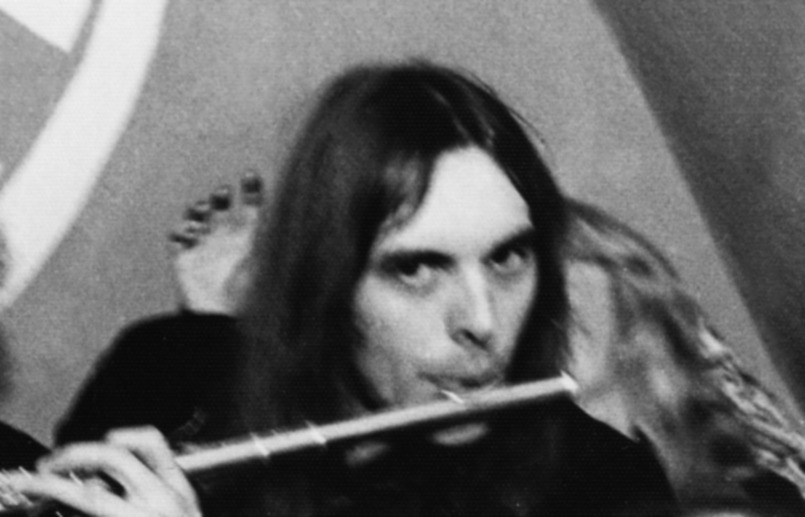
Where did you like to stay most in Dortmund ? What was the scene like at the end of the 60s and 70s?
Dortmund didn’t have a real scene like one might imagine today. Musicians would occasionally meet at the music store downtown, exchange ideas, or visit each other’s band rehearsals. Dance schools organized band competitions in plain ballrooms.
What do you think was the band’s overall vision?
Our vision? We simply wanted to make great music and definitely record a record and then become famous.
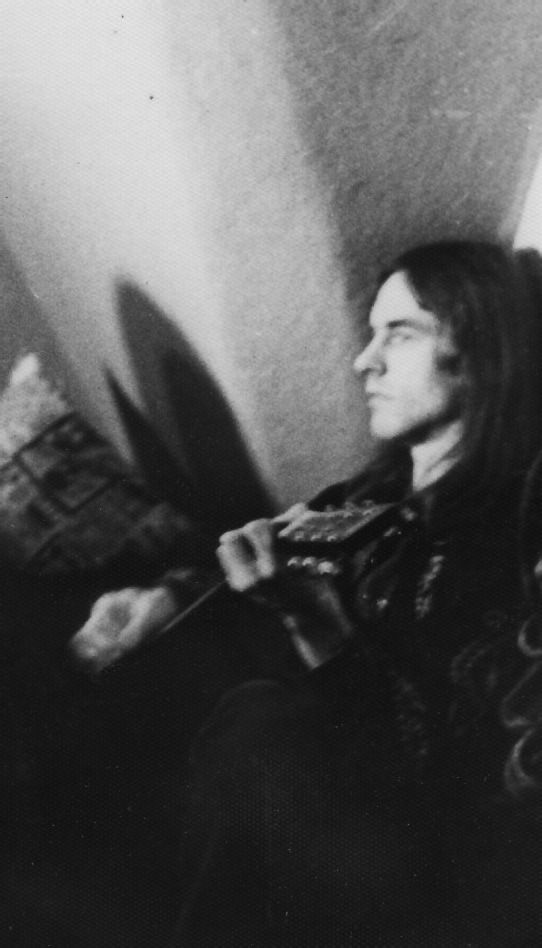
Tell us about your rehearsal location.
It wasn’t easy to find a rehearsal space, so in the first few years, we practiced in various youth centers from afternoon into the evening. This meant we had to set up our sparse equipment each time and then dismantle it to prevent theft.
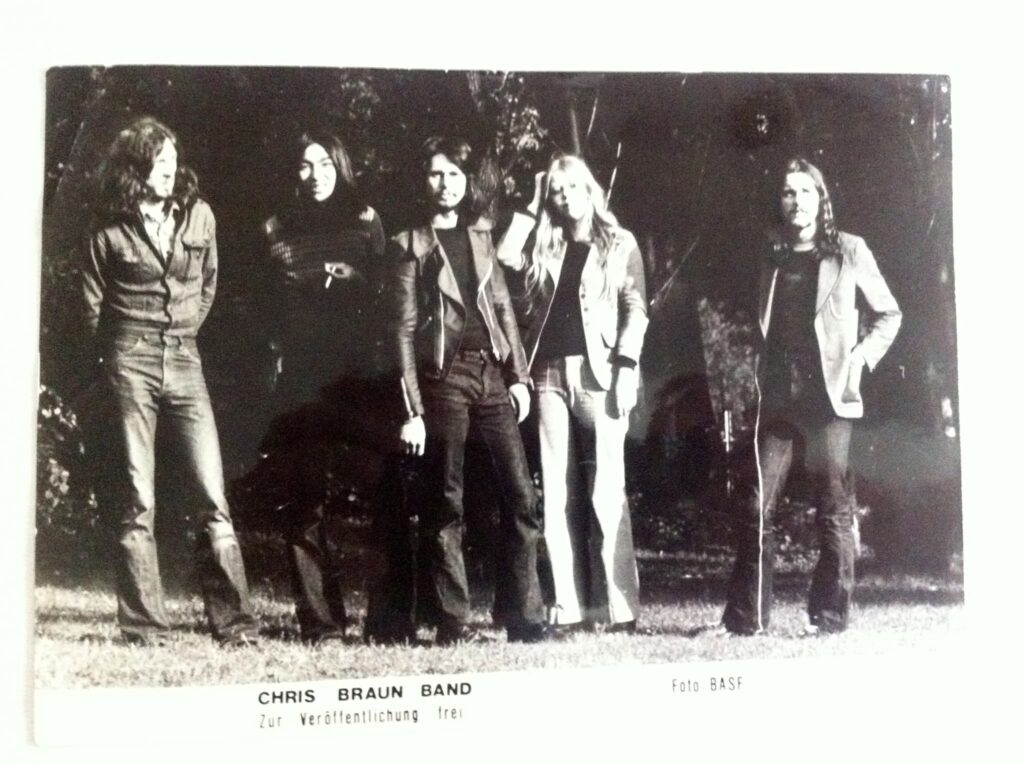
Later on, we were able to rent an empty apartment on an industrial site, where we set up a proper, permanent rehearsal space. Around this time, we started to move away from cover songs and gradually replaced them with our own compositions.
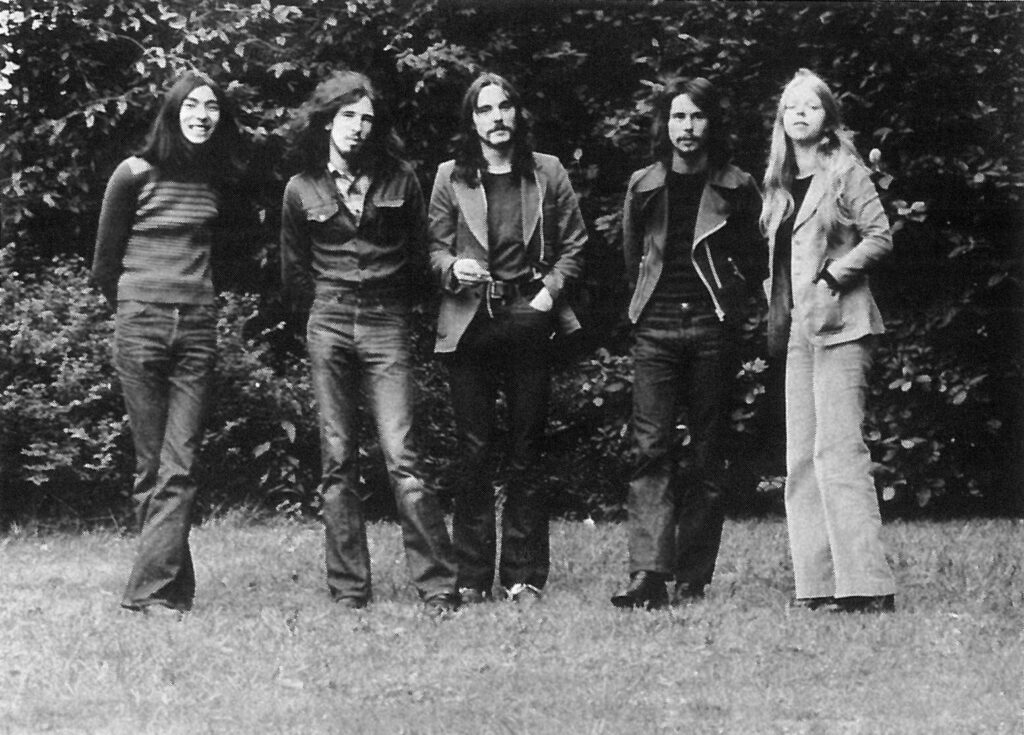
What are some venues you played early on and what are some of the bands you shared stages with?
In the early days, we played exclusively in local youth centers or dance halls. As our performances became more professional, the range of venues expanded, and we also played in other cities such as Grünspan in Hamburg, Underground in Darmstadt, as well as in Krefeld, Frankfurt, Bochum, and others.
After our first record was released, we had professional management in Hamburg that arranged gigs for us across Germany. That was the time when we performed at many major festivals alongside well-known German bands, including UFO, Frumpy, Atlantis, Klaus Doldinger Passport, Embryo, and many others.
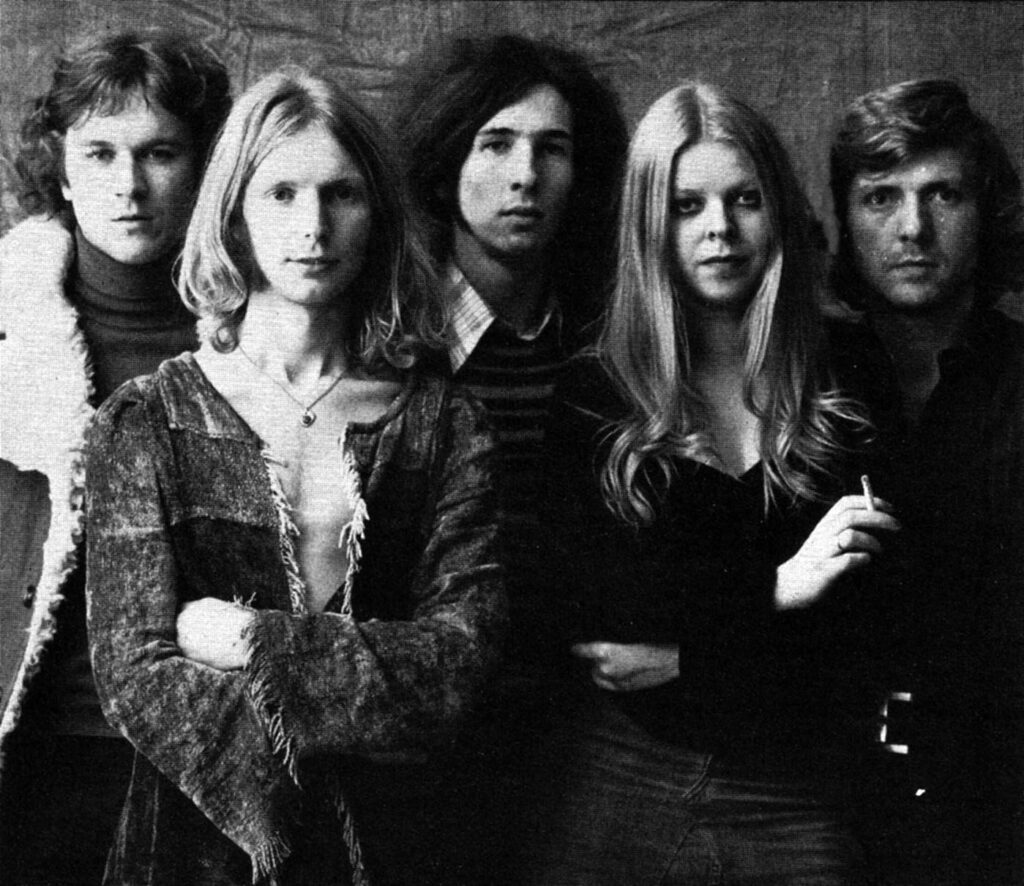
What kind of amps, effects and pedals did you have in the band?
We once had a Marshall half-stack for guitar and bass effects pedals. We didn’t use them as they are known today. Unfortunately, the original amps are no longer around. They would be worth a fortune today.
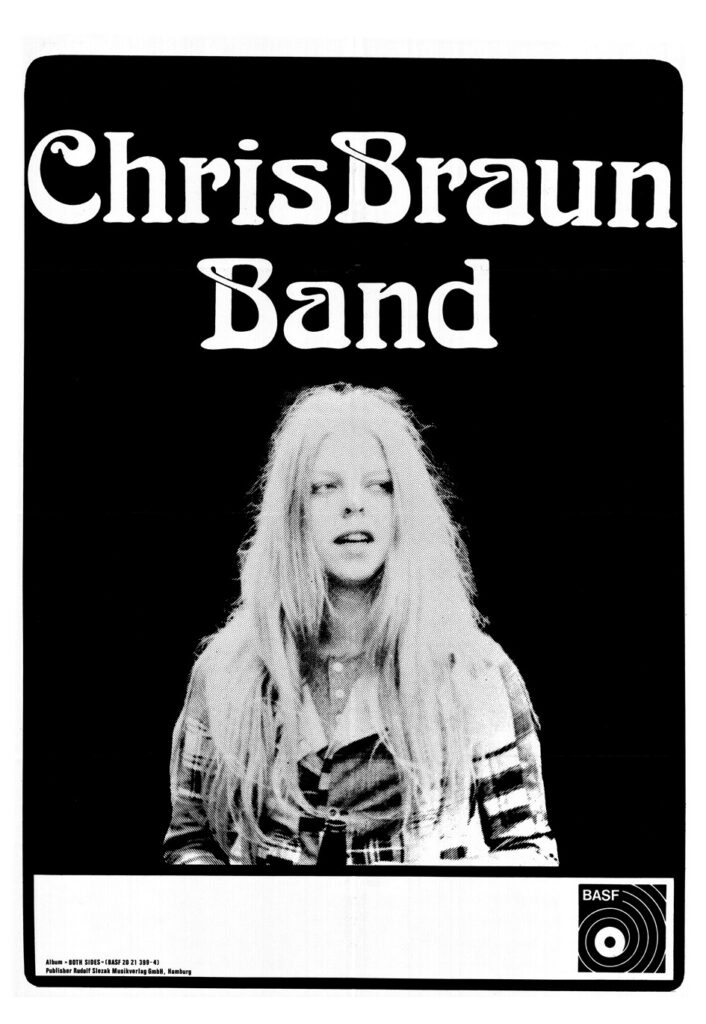
How did you get signed to BASF?
In a music trade magazine, I read that BASF had established its own label. This prompted me to travel to Hamburg with Chris. I remember their office was at Grindelhof, and we simply walked in and asked if we could present our music.
The then-label manager, Martin Schmeißer, was surprised and impressed by our naivety and took the time to listen to our cassette. I believe Chris Braun’s voice particularly captivated him.
After that, things moved quite quickly. Martin Schmeißer wanted to be the producer himself and booked five recording days for us at Studio Windrose in Hamburg. We recorded our songs just like we would perform them live, using the same equipment. Only effects like percussion or piano were added afterwards, and vocals were of course recorded later as well.
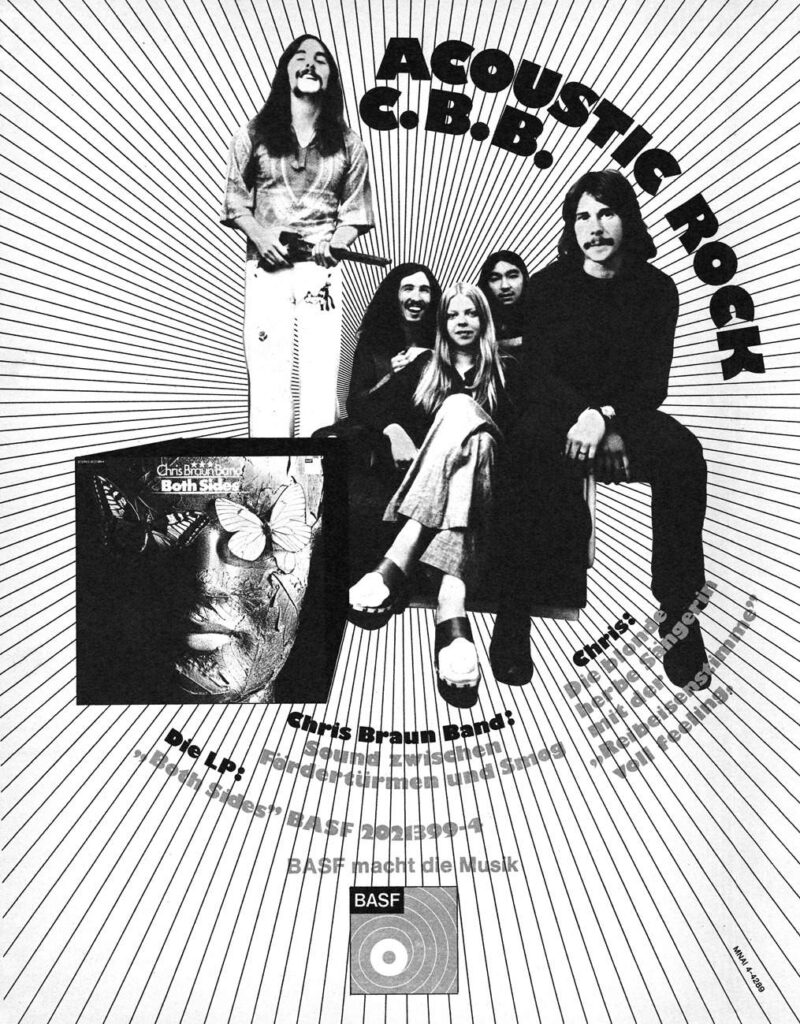
Please share your recollections of the sessions.
Unfortunately, I can’t remember that today. I just know that we wanted to be musically excellent and put a lot of effort into delivering perfect guitar music and perfect vocals. My favorite song from that time is definitely the title: ‘Things for You and Me.’
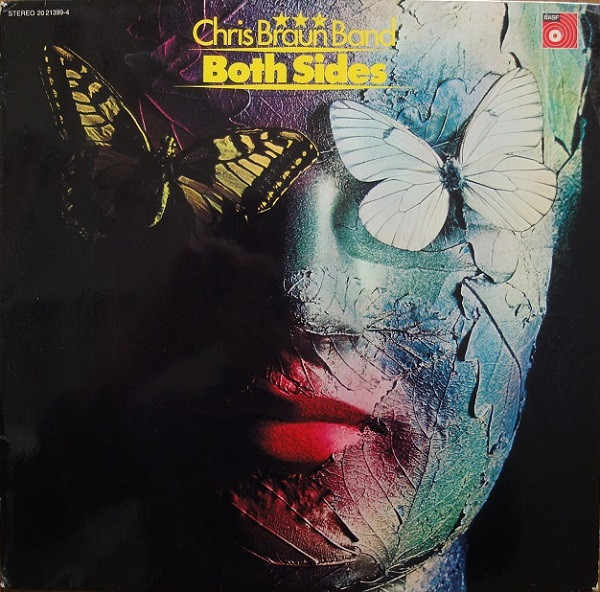
What about your album ‘Foreign Lady,’ which was released on Pan. Would you be able to draw any parallels to your debut?
Some time after the debut album was released, our band broke up because the drummer was called up to the Bundeswehr (German armed forces). We experimented with various musicians but didn’t find a promising lineup.
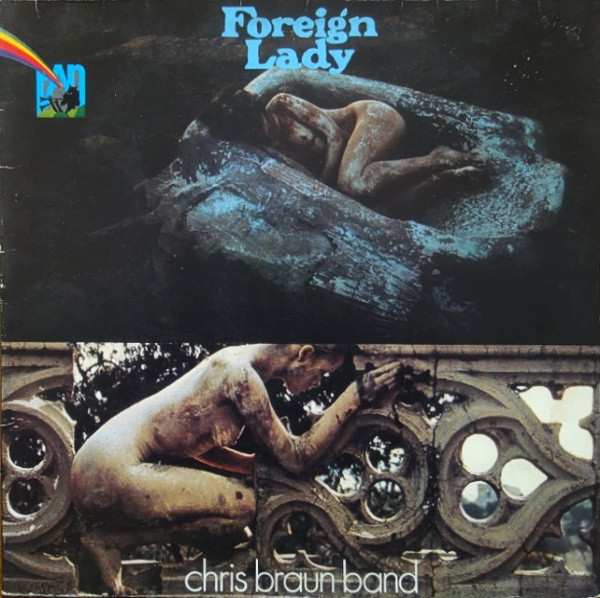
Frustrated by this situation, Chris and I decided to completely restructure. That’s when drummer Ralph Bloch, guitarist Bernd Adamkewitz, and pianist Klaus Melcher joined the Chris Braun Band. They were seasoned musicians with extensive experience in different music genres and were eager to pursue more sophisticated compositions and performances with the band.
This led to a completely new, musically challenging repertoire, which, however, faced its limitations during live performances.
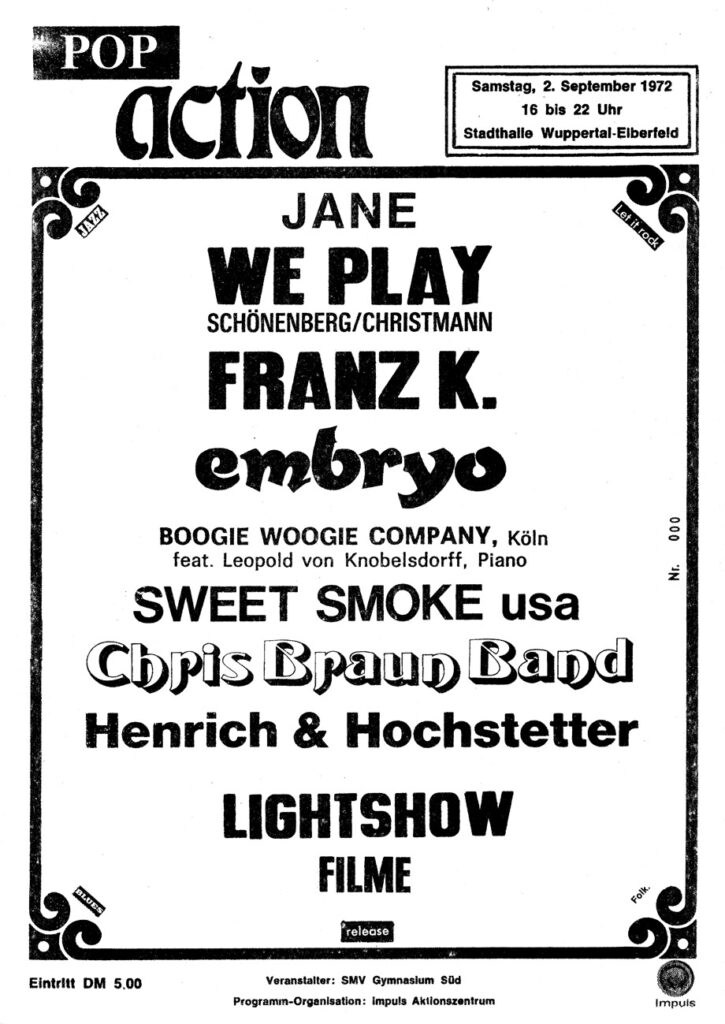
How many years has Chris Braun Band existed?
The Chris Braun Band existed from 1970 to 1977, after which all the musicians went their separate ways.
Later in the 80s you released ‘Jede Menge Kohle’. That was a soundtrack, right?
In the early 1980s, we got to know the cult director Adolf Winkelmann. He was planning his second major feature film and found it charming to have a Dortmund band provide the soundtrack for this film. I myself participated in the production as both an actor and assistant director.
Quickly, the old band colleagues were reactivated, and we rehearsed extensively for the film’s soundtrack. This soundtrack was then released by the record company CBS.
And the final release is ‘Ultrabraun’. Your style completely changed by the time…
During that time in the early 1980s, a music trend emerged under the title Neue Deutsche Welle, which made waves. We found this music amusing and just for fun, we recorded a song titled ‘Christbaum brennt’ (Christmas Tree is Burning).
We couldn’t imagine that this novelty song would bring us to television and become a hit in the student scene. CBS in Frankfurt then insisted that we record another German-language album. This LP included the track ‘Chick und elegant’ (‘Chic and Elegant’).
This song appeared on several compilations and is still available on Spotify today. After this, we didn’t perform with German-language songs in this lineup anymore.
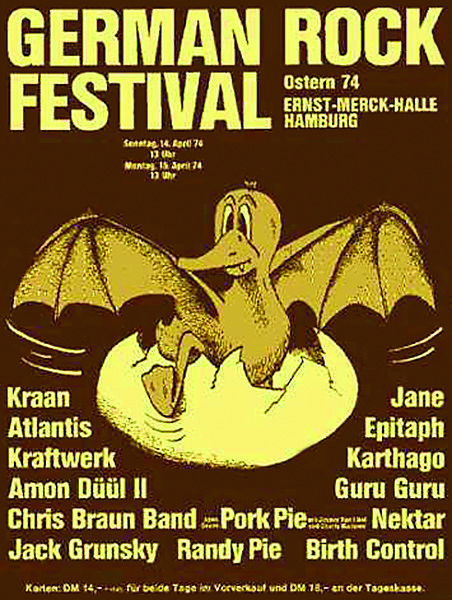
Was there another original track that you played live but didn’t record?
Yes, there are many songs that we played live but were not recorded in the studio.
Is there any unreleased material?
There was unreleased material, but unfortunately, it is lost.
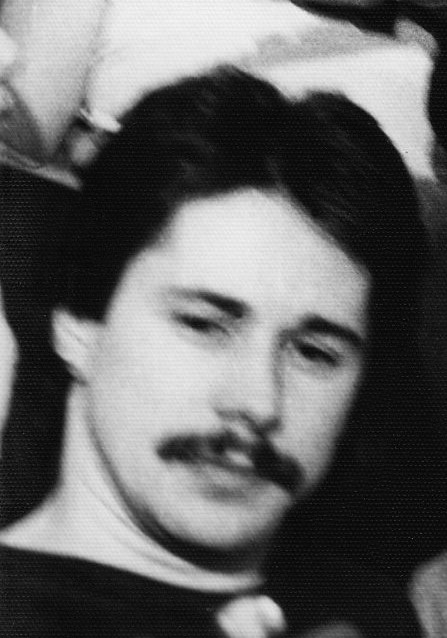
What would be the craziest gig you’ve ever done?
I think the craziest performance we ever had was at the band competition in the Vestlandhalle in Recklinghausen.
Originally, we were scheduled to perform that day at a dance school in Olfen and wouldn’t have had time to participate in a band competition. However, our drummer insisted vehemently, so before heading to our scheduled gig, we stopped by Recklinghausen and asked if we could still join. The answer was simply yes.
We had to go on stage immediately around 2:00 PM on Saturday afternoon and play two or three songs completely unprepared. That’s exactly what we did. Afterwards, we rushed to our scheduled performance at the dance school in Olfen.
Around midnight that same day, our drummer insisted on returning to Recklinghausen to find out what place we had landed in the band competition. The event was over by then, and someone cleaning up informed us that they didn’t know who had won, but it was curious that the winning band wasn’t present at the end of the event and couldn’t perform again. Our suspicion was correct: we were the winning band.
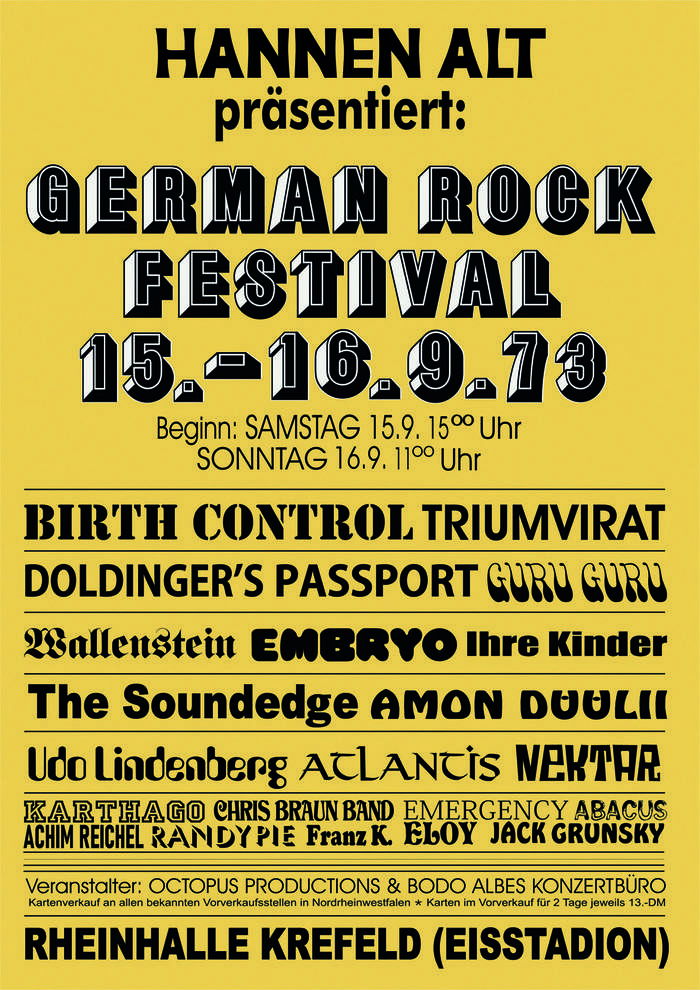
What followed for the members of the band? Did you all stay involved with the music?
By the mid-1980s, we weren’t a proper band anymore, and everyone had gone their separate ways. Chris had stopped singing, and I had stopped playing. Other members tried their luck in other bands but were only moderately successful there.
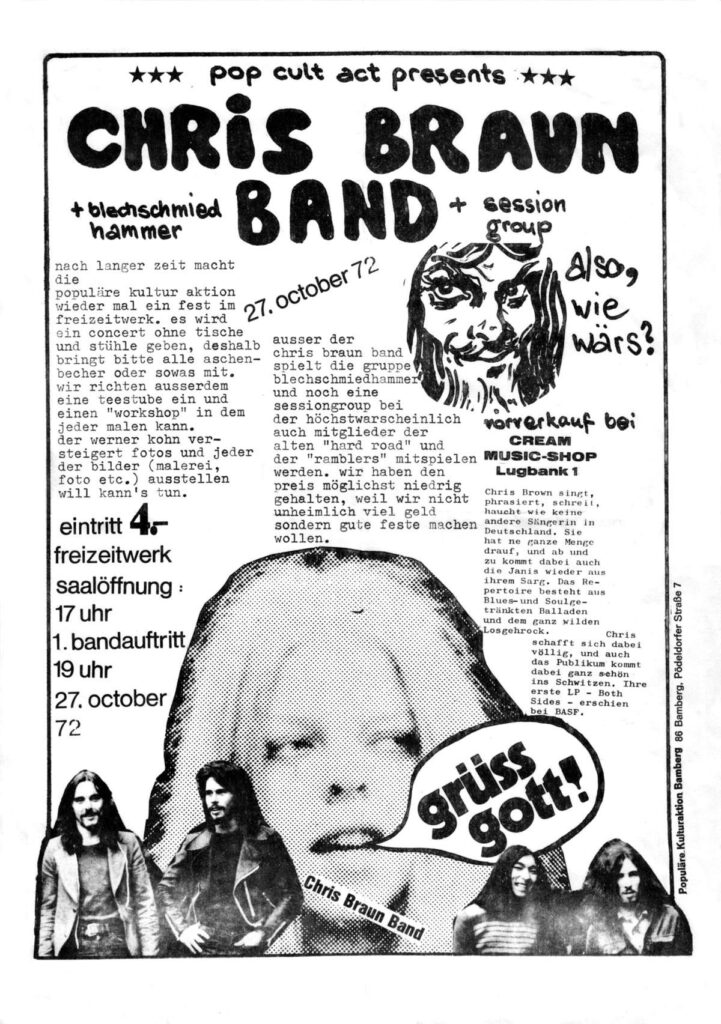
Looking back, what was the highlight of your time in the band? Which songs are you most proud of ? Where and when was your most memorable performance?
I believe the period from 1970 to 1975 was probably the personal highlight time of the Chris Braun Band for me.
The Chris Braun Band debut album ‘Both Sides’ won the German Record Award for Best New Artist in its release year. The award ceremony took place at the Mozarteum in Salzburg. On that occasion, the Chris Braun Band also performed there. Looking back, that was certainly one of the most spectacular moments in the band’s history for the Chris Braun Band.
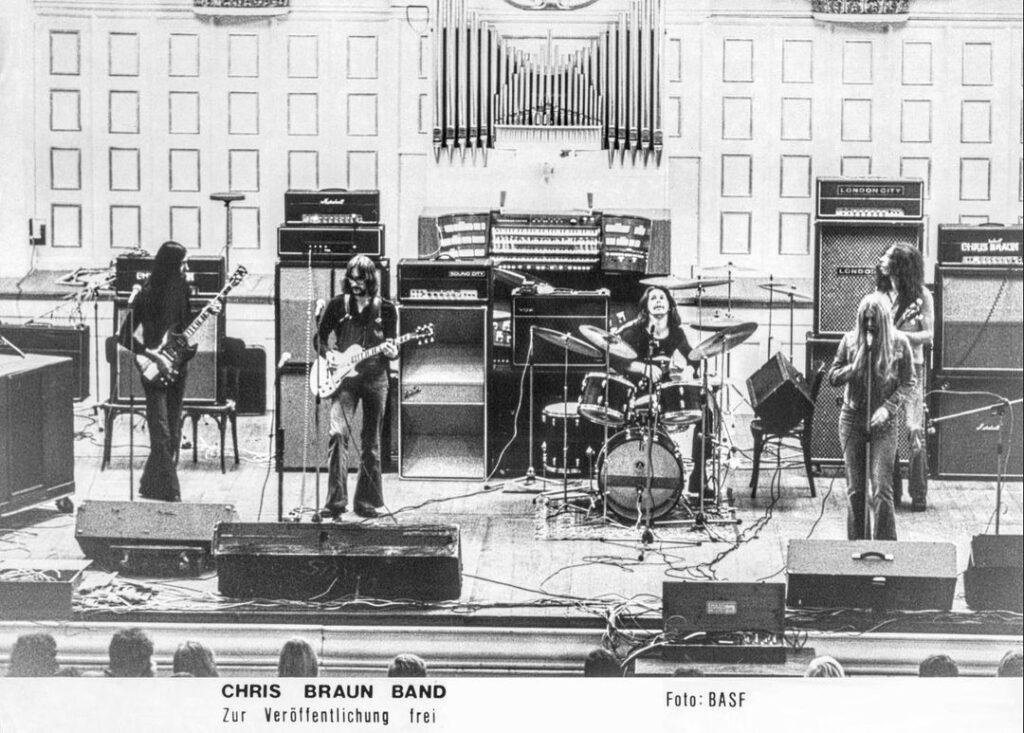
What is currently occupying your life?
After my music career, I pursued the profession that I studied and had the opportunity to experience a respectable career in marketing and as a designer. Details about this career can be found on the internet and on Wikipedia. Today, I only work on individual marketing projects.
It was a great time, and within the scope of my abilities, I achieved everything musically and with the band formation that one can achieve. I had the opportunity to act in numerous films. Later in my career, I spent many years in marketing at Coca-Cola, and today I cherish the memories of an exciting, eventful, and fulfilling life. I am always there to support my children with advice and assistance.
Klemen Breznikar
Garden of Delights Official Website

